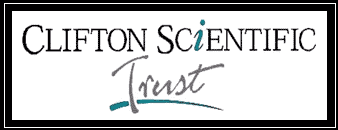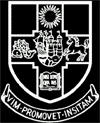Home | About the
Space Science Team | Before | During
| After | Student
Presentations | Visual Tour
Publications | More
Links and Resources | Site Map
Outcomes



registered charity 1086933
www.clifton-scientific.org/j2001UK-Japan Young Scientists Working Together
OUTCOMES
of the
JAPAN 2001 SCIENCE, CREATIVITY AND
THE YOUNG MIND WORKSHOPHosted at the University of Bristol, July 22-30, 2001, with
Public Presentations by UK-Japan Student Teams, Friday 27 July 2001Patron; The Rt Hon the Lord Jenkin of Roding
1. The Japan 2001 Science Creativity and the Young Mind Workshop was a First.
Nothing quite like it had been attempted before. As part of the Japan 2001 Festival, sixty post-16 school students from schools across Britain and Japan came together to work in small teams with expert guidance on a wide range of cutting-edge, science-related explorations which put their school knowledge to real life use and challenged their ingenuity and creativity. The Workshop was free of charge to students on arrival in Bristol. A message of welcome from Lord Sainsbury of Turville, Parliamentary Under Secretary of State for Science and Innovation is appended.2. THE STUDENTS
2.1 UK students were selected with guidance from the University of Bristol Widening Participation Office using criteria which gave strong preference to students from homes having little previous contact with higher education.2.2 Japanese students were selected by a team led by Professor Mamoru Shimoi (University of Tokyo/ Chemical Society of Japan) and Japanese colleagues representing other scientific disciplines, a number of whom attended the Workshop as observers. Dr Toru Okano of the Rokkyo School, Horsham played a crucial role in establishing this partnership.
2.3 Both in Japan and in Britain the Workshop was rapidly over-subscribed, and in both countries two thirds of the applicants were women.
3. OBJECTIVES
3.1 By providing school students with opportunities to work with professionals in a wide range of science-related fields, the Workshop addressed serious concerns in Britain and in Japan that science education is perceived by many young people as difficult, dull and irrelevant. Such grass roots partnerships which transcend the world of school science are currently not common in the UK and are rare in Japan.3.2 In this context, the Workshop sought to enable the students to develop a broader vision of science and its applications, and to develop more fully the "scientist within themselves" whether or not they intended a career in science. The Workshop sought to enable students to put the skills and understandings they had gained in school to real life use, and to experience science as something more than a compendium of "right answers", but rather as a creative, human questioning and exploration in which all can share.
3.3 Integral to this a major objective of the Japan 2001 Workshop was an exploration of the potential of science as a context through which, by living and working together on real life issues, Japanese and UK students can experience, share and learn about each other's cultures and life styles, ways of thinking and of doing things. .
3.4 The Workshop built on earlier work of the Trust with teachers and scientists in both countries sharing experiences of bringing excellence and relevance to science education in their respective countries.
4. Programme
4.1 Students worked in a UK-Japanese Teams of six, with the guidance of professionals in their fields, in one of the following ten science-related areas:· aeronautics
· archaeology
· chemistry
· earthquake engineering
· environment,
· ethics in medicine
· science communication through theatre,
· space science
· vulcanology
· wildlife conservation.Students were assigned to particular Teams on the basis of preference they indicated before the Workshop.
4.2 At the end of the week, an afternoon was set aside to enable each Team to give a concise Public Presentation on its achievements.
4.3 The challenges the students faced were formidable. In addition to the very considerable challenge of the science, there was the additional challenge of language, and it was far from certain initially how successfully this would be addressed. The fact that it was says a great deal for the maturity and the determination of the students who worked extremely hard to make the Workshop the great success it was. Major contributors to this success were the Facilitators, Japanese undergraduates and graduate students from Bristol University Japanese Society (mostly not scientists), one of whom worked with each Team. They developed their role as the Workshop progressed and played an essential role in enabling the Teams to bond and to overcome their inevitable initial difficulties.
4.4 Throughout the Workshop, students lived together as sole occupants of a University Hall of Residence. In addition to their project teamwork, a programme of visits was arranged, and there were social events in the evenings through which students shared their diverse cultural experiences. The UK team was multiethnic, which added to the interest.
5. Outcomes
5.1 It is very clear that in spite of, or because of, the major challenges the students faced and overcame, the dominant reaction of both UK and Japanese students was one of great exhilaration and pride in what that achieved. The responses are a world away from the "science is boring" "science is irrelevant" attitudes commonly ascribed to young people in secondary schools (see C. Lever, Science is boring!, letter, School Science Review, 83 (303) 17-20 (Dec 2001)).5.2 The following are typical of the feedback received as part of a detailed Student Evaluation of the Workshop.
· when at school, I was learning the science without being able to apply it; now I know what real science is like; I love it!
· I managed to do a written report and presentation on a subject I knew nothing about with people I did not know, and yet to enjoy myself at the same time. I feel so proud to have taken part. I will never forget it.
· I have learnt loads, not just about science but an awareness of the world
· it has changed my attitude a lot. I thought the Japanese were lovely people and I have realised there is so much to learn about the world
· school teaches only the formula or the calculation, but the Workshop is researched into deeply by myself
· at the beginning of the week, communication was a problem, but now it has been overcome and everything is exciting..
· it has made me realise how much differences we all have, yet we all have so much in common and can enjoy our differences instead of having conflicts
· [at the end...].said that the end is the beginning. I think so too. I want to learn more about science and continue our friendship. I cannot express my feeling. I am very, very, very glad to take part in this Workshop
5.3 Linked with this, the Students responded incredibly well to the challenge and worked very hard indeed. They and we were amazed at the progress that they made and at the enthusiasm which was engendered. At the end of the week, a whole afternoon of public presentations by the student teams showed just how much had been achieved. A quotation from the scientists at NASA with which the student Space Science Team was in daily video conference link emphasizes this point. The ICT link with NASA was the inspiration of Lawrence Williams of Holy Cross School, New Malden, who supported the team throughout.
During four videoconferencing connections between Joe Kolecki and the Space Science team, we witnessed real world science education at its finest... studying images and maps of Mars with their Bristol University team leaders, the six young scientists developed a final presentation to Joe on what they learned, their still unanswered questions, and suggestions for further investigations. Special guests from NASA and the Center of Science and Industry (COSI) in Toledo, Ohio, all felt the excitement of the real life scientific investigation and were amazed at the students' initiative and hard work. The model demonstrates effective collaboration among diverse cultures, as well as the effective use of technology (ISDN videoconferencing, e-mail, data sharing, and the Internet) in the educational setting. More importantly, it demonstrates that, given an exciting challenge and necessary resources, young people will far exceed everyone's expectations!
Ruth Petersen, Educational Coordinator, Learning Technologies Project,
NASA Glenn Research Center at Lewis Field, Cleveland, Ohio5.4 A large amount of material was generated by the Workshop, including Team Reports, material from the Public Presentations, a number of which were in Powerpoint format, and Evaluations have been provided by the Students, by the Facilitators and by Team Leaders. There has also been very positive feedback from some of the schools, and a number of students have also written after the Workshop. A number of articles are in preparation or have appeared. These include an article in the British Council Science Education Newsletter, Dec 2001, articles and short notes in Japan (Embassy of Japan) Aug 28, 2001, and in various University of Bristol publications including University News, October 2001, and the University of Bristol Annual Report. NASA, with whom the Space Science Team was in contact, has produced its own report on the Workshop "Real World" Connections through Videoconferences (November 2001), and a letter is in press with the School Science Review (Association for Science Education), shortly to be followed by an article. A presentation was also made at the Annual Meeting of the Association for Science Education, Liverpool, January 2002. Information is also posted on the Workshop Website, www.clifton-scientific.org/j2001.
6. Conclusions
6.1 The messages which emerge from both UK and Japanese students include the following:· that what happens in school can and must be more closely linked with what happens in the wider world if it is to be meaningful, and here working partnerships which transcend the world of school provides a way forward.
· that if students are given opportunity to put their school knowledge to work in real life open ended contexts, and to have ownership of their own questioning, they will surprise us by their achievements
· that students need and value opportunities to use their science collaboratively in groups, in cross disciplinary and cross cultural human contexts, and through science to have opportunities to develop as people. Science in such contexts is not a disciplinary ghetto, but is part of the whole of life.
· that the students almost universally wanted the Workshop experience to continue.
When Science is approached in these contexts, it cannot fail to inspire, to motivate and to be a source of great fulfilment. Context is everything!
6.2 It is very clear that there now exists an opportunity and a need to build on the success of the Japan 2001 Workshop, which addresses important science education issues in both The UK and in Britain, as well as providing a further potentially very important context by which young people in both countries can learn about each other's cultures and ways of life.
6.3 The Students who have taken part in the Workshop should be invited to act as Ambassadors in taking forward this vision. Clifton Scientific Trust would be very interested in working with Japanese colleagues in developing this thinking within Japan through presentations, seminars and the development of materials for use with schools, as well as, as at present, in the UK. A Focus for this work would be a further Workshop at a future date, building on the lessons learnt in Japan 2001.
The Japan 2001 Science, Creativity and the Young Mind Workshop was a Japan 2001 Festival Event, devised and organised by Clifton Scientific Trust and supported by the Daiwa Anglo-Japanese Foundation, the Great Britain Sasakawa Foundation, Japan 2001, and the Chemical Society of Japan.
Recruitment of British Students was undertaken in association with the University of Bristol Widening Participation Office, and recruitment of Japanese students was undertaken and funded by the Chemical Society of Japan; Council of Chemistry Education in association with the Society of Biological Sciences Education of Japan, the Physics Education Society of Japan, and the Japan Society of Earth Sciences Education. Workshop partners included Airbus UK, Bristol Zoo Gardens, Bristol City Museum, Connexions West of England, The Environment Agency, The Y Touring Theatre Company, The University of the West of England and colleagues from Holy Cross School, New Malden & Rikkyo School, Horsham.
Further information from Dr Eric Albone, Director, Clifton Scientific Trust, eric.albone@clifton-scientfic.org ; www.clifton-scientific.org ; +44-(0)117-924-7664+ fax
Message of Welcome to Japan 2001
Science, Creativity and the Young Mind Workshop
Lord Sainsbury of TurvilleThe Japan 2001 Science, Creativity and the Young Mind Workshop constitutes an important first in bringing together post-16 students from schools across Britain and Japan to work in small teams with top scientists, engineers and social scientists on a wide range of open-ended science-related explorations which challenge their ingenuity and creativity. In the process the students will not only put their school knowledge to genuine use and discover something of the "scientist in themselves", but also by living and working together come to understand each other's ways of thinking and working.
That science in a practical real-life context resonates with young people is demonstrated by the fact that the Workshop was rapidly oversubscribed in both countries and, significantly, that the majority of takers are young women.
The outcomes of the Workshop will not only be in widening the vision of the students taking part, but also in providing a very important marker for future collaboration between our two countries. In this context, I welcome the vision of the Clifton Scientific Trust in setting up this Workshop, of the Japan 2001 Festival in endorsing it as a Festival event, and of the many partners in both countries who have contributed to its realisation. Not least, I number among these the University of Bristol Widening Participation Office, Airbus UK, the Environment Agency, and other Bristol institutions and, in Japan, the Chemical Society of Japan who have worked with the other Japanese scientific societies in recruiting students. Also, the principal sponsors, the Daiwa Anglo-Japanese Foundation, the Great Britain Sasakawa Foundation, and the Japan 2001 Secretariat itself.
Most of all, I welcome the young people from our two countries whose energy and enthusiasm will pioneer such an exciting and important new venture.
Lord Sainsbury of Turville
Minister for Science and Innovation
July 2001
(LS 062-07)
Web Related:
David.Mazza@grc.nasa.gov
Technology Related: Joseph.C.Kolecki@grc.nasa.gov
Responsible NASA Official:
Theresa M. Scott


